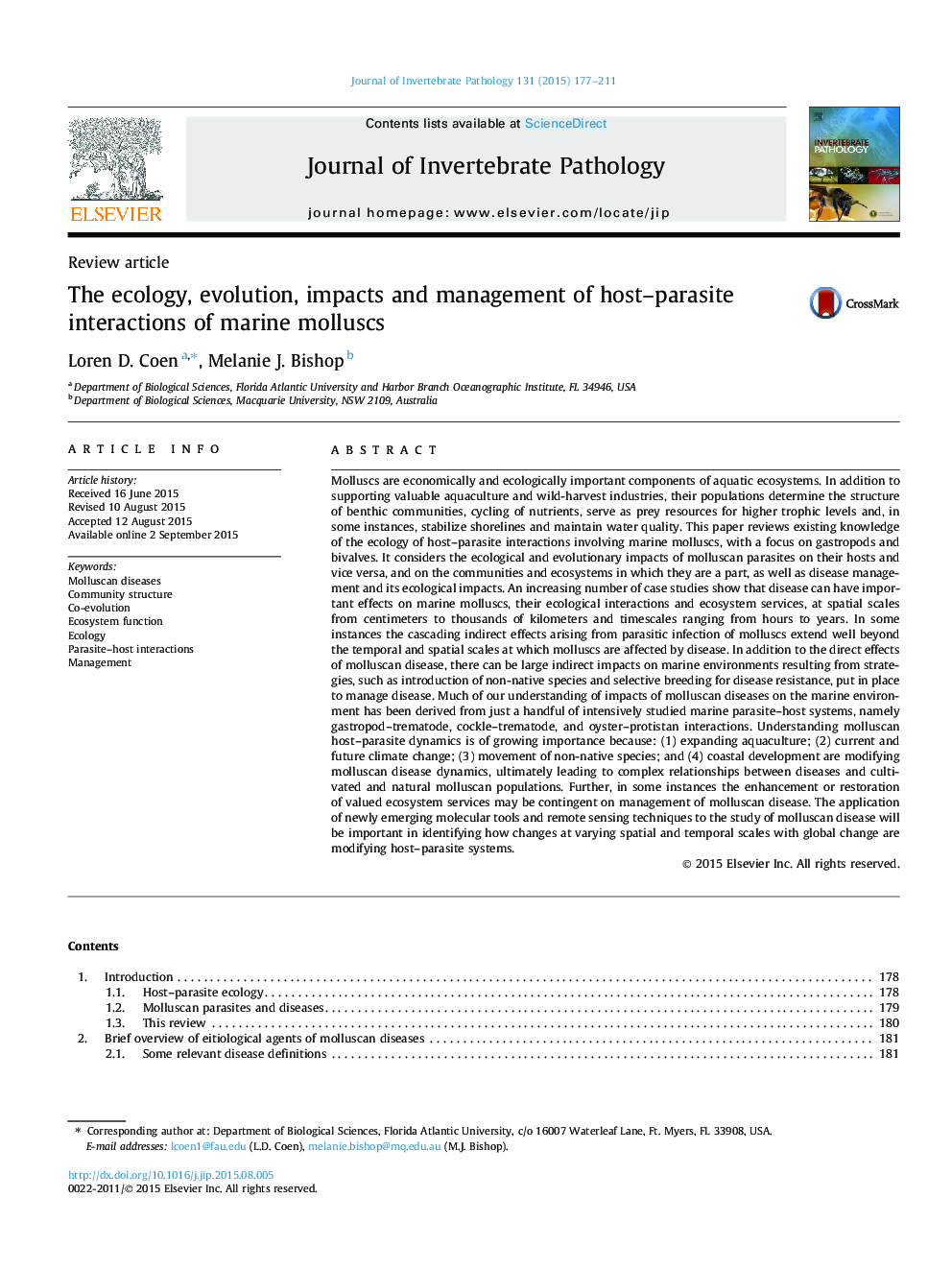| کد مقاله | کد نشریه | سال انتشار | مقاله انگلیسی | نسخه تمام متن |
|---|---|---|---|---|
| 4557539 | 1628221 | 2015 | 35 صفحه PDF | دانلود رایگان |
• Many marine molluscs are ecosystem engineers that enhance biodiversity.
• Thus, molluscan diseases affect whole communities and ecosystems.
• Changing environmental conditions influence host–parasite interactions.
• Strategies to manage molluscan disease can also have ecological impacts.
• Molecular and remote sensing tools provide new opportunities for research.
Molluscs are economically and ecologically important components of aquatic ecosystems. In addition to supporting valuable aquaculture and wild-harvest industries, their populations determine the structure of benthic communities, cycling of nutrients, serve as prey resources for higher trophic levels and, in some instances, stabilize shorelines and maintain water quality. This paper reviews existing knowledge of the ecology of host–parasite interactions involving marine molluscs, with a focus on gastropods and bivalves. It considers the ecological and evolutionary impacts of molluscan parasites on their hosts and vice versa, and on the communities and ecosystems in which they are a part, as well as disease management and its ecological impacts. An increasing number of case studies show that disease can have important effects on marine molluscs, their ecological interactions and ecosystem services, at spatial scales from centimeters to thousands of kilometers and timescales ranging from hours to years. In some instances the cascading indirect effects arising from parasitic infection of molluscs extend well beyond the temporal and spatial scales at which molluscs are affected by disease. In addition to the direct effects of molluscan disease, there can be large indirect impacts on marine environments resulting from strategies, such as introduction of non-native species and selective breeding for disease resistance, put in place to manage disease. Much of our understanding of impacts of molluscan diseases on the marine environment has been derived from just a handful of intensively studied marine parasite–host systems, namely gastropod–trematode, cockle–trematode, and oyster–protistan interactions. Understanding molluscan host–parasite dynamics is of growing importance because: (1) expanding aquaculture; (2) current and future climate change; (3) movement of non-native species; and (4) coastal development are modifying molluscan disease dynamics, ultimately leading to complex relationships between diseases and cultivated and natural molluscan populations. Further, in some instances the enhancement or restoration of valued ecosystem services may be contingent on management of molluscan disease. The application of newly emerging molecular tools and remote sensing techniques to the study of molluscan disease will be important in identifying how changes at varying spatial and temporal scales with global change are modifying host–parasite systems.
Figure optionsDownload as PowerPoint slide
Journal: Journal of Invertebrate Pathology - Volume 131, October 2015, Pages 177–211
